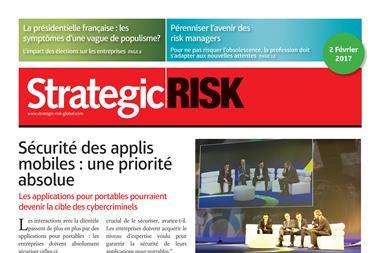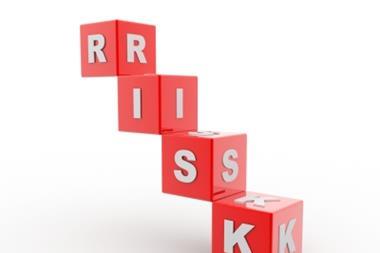Risk managers need to adapt to new requirements and expectations or risk becoming redundant

The future of risk management has always been on AMRAE’s agenda, but it can be challenging to predict the future beyond ongoing trends. The world certainly seems to become more uncertain. This translates in both a need for more uncertainty management and a visceral desire for more reassurance. But while risk management is quite good at spotting what could go wrong, it doesn’t reasonably seem in the best position to state that everything will be ok.
Where does that leave us? Risk management as a top function could lose influence at the benefit of more assurance-oriented functions. On the other hand it could prove to be a valuable strategic tool to cope with the accelerating complexity of the industrial revolution we are facing, demonstrating a real business-oriented added value.
Many risk events are no act of God or systemic domino effects but targeted intelligent maneuvers: people or organisations actively targeting other organisations. These threats could be legitimate and acting through legal channels (NGOs, activists, interest groups, consumer groups and so on) or illegal and potentially violent (black hats, terrorism, cyber crime and so forth). Companies’ capacity to coordinate their internal departments to dynamically and swiftly adapt to these attacks is a new challenge that risk management has to face. Let’s call it real-time risk management.
Uncertainty is equally about risks and opportunities. Fearing change without seizing chances that come with it could turn risk management into the last defense mechanism of organisations failing to adapt their business model to a rapidly evolving environment. Business Darwinism of some sort. There might be a case for risk management to embrace elements of the opportunity management practice. In markets where seizing business development opportunities makes the difference between having a future or not, leaving opportunity management aside could ostracise risk management in the medium term.
As always when it comes to looking at the future, it comes down to challenges. If risk management as a function is capable of evolving and adapting to these challenges, then risk managers face a bright future. If we fail to adapt to these new requirements and expectations, we would just have proven ourselves to be obsolete objects of an outdated vision. Are we doomed to fade away? Certainly not. My firm belief is that risk management as a corporate function has risen out of a need to cope with the increasing complexity of our organisations: globalisation, larger M&As, growth in size, increasingly multicultural and multi-domestic, operating in more markets with different cultures, with a more complex supply chain and less time to develop and deliver, just to name a few of the challenges modern businesses face. We are living in a time where there are visible “use-by dates” on our organisations’ strategies and business models.
If complexity is the reason behind risk management’s early successes, then why can’t risk management prove itself even more successful in an ever more complex world? Adapt or disappear. We need to plug into our organisations’ strategies while bridging the gap with strategic realities. We need to provide the quarterly expected vision while tackling real-time threats. We need to mobilise the lifeblood of our companies beyond silos while integrating the wider supply chain. We need to preserve our organisations’ more strategic assets and interests while understanding and managing their footprint on others. Risk management seems to become stretched between sometimes contradicting expectations or trends. But in the business of uncertainty that’s probably the only reasonable place to be to truly prove being useful: stabilising, taming or even fertilising chaos.
You can dodge the wave or get drowned but you can also surf it. Be in the boardroom and plug into strategic challenges; unite and mobilise the organisation to tackle real-time threats; go beyond protecting the current business model and open yourself to embrace and consider strategic opportunities arising out of chaos; learn, educate and share your knowledge.
Great times are coming, maybe unprecedented times. I believe in a bright future for risk management, providing we give meaning, adapt, and innovate.




















No comments yet